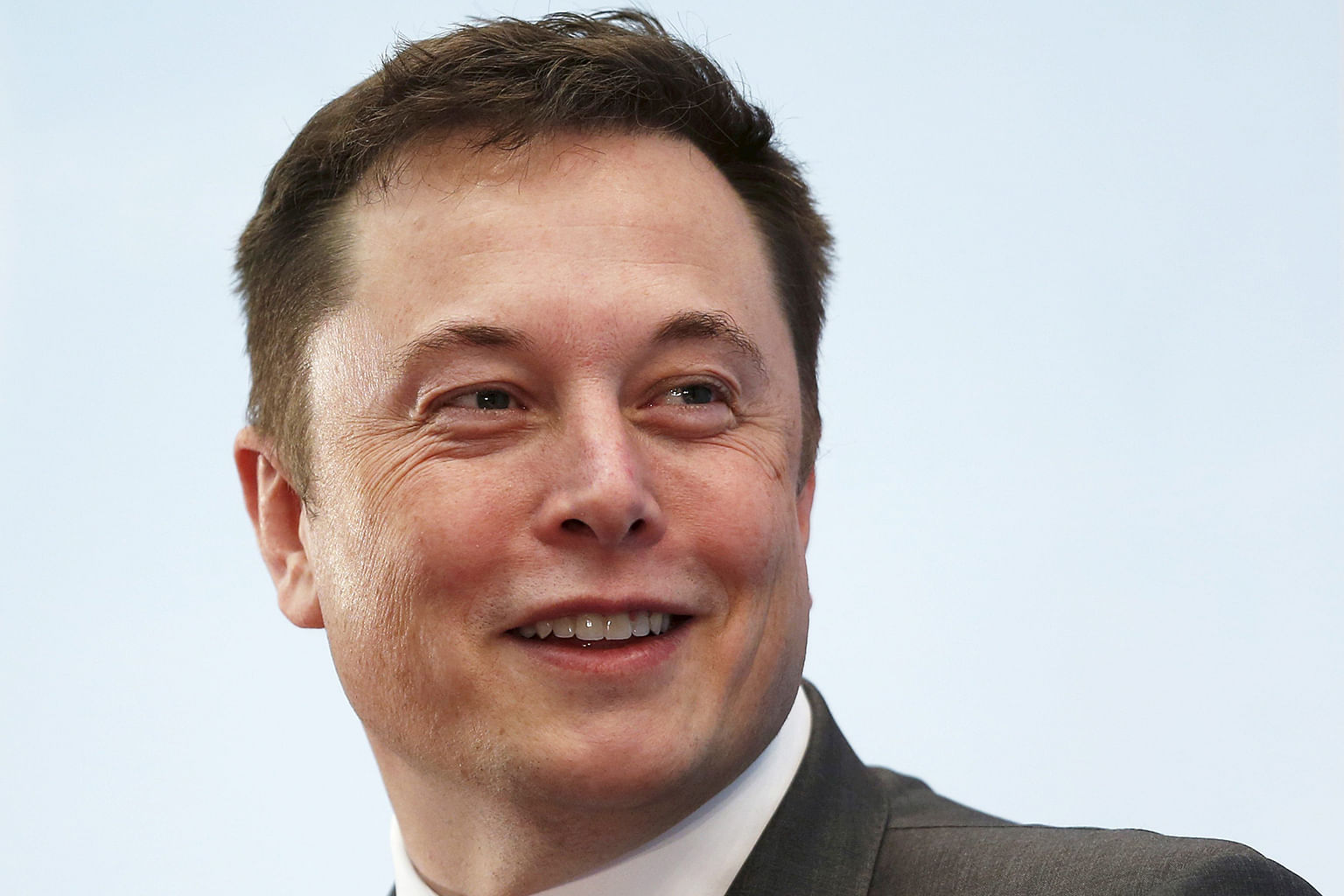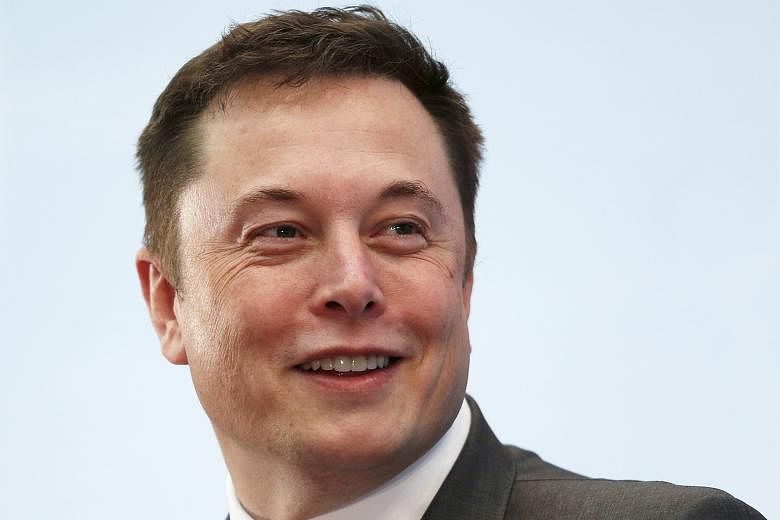Inventor and entrepreneur Elon Musk is everything you would associate a geek to be.
The South African-born American citizen speaks with a slight stammer, occasionally stumbling over his words.
He wears ridiculously mismatched clothes most of the time, as if he rushes out of bed every morning and grabs whatever clothes are around. And gives interviews like these: "When I was a kid, I was really scared of the dark. But then I came to understand, dark just means the absence of photons in the visible wavelength - 400 to 700 nanometres."
But to many, he is a superhero: The real-life Tony Stark/Iron Man, the comic book character who is also a billionaire and invents a robot suit with a military arsenal that can obliterate an entire nation.
Mr Musk's achievements are not that far off. He also happens to be a billionaire, and not just makes robots, but also space shuttles and electric cars. He also wants to die on Mars.

And like comic book superheroes, he could well be the answer to the key problem of manufacturing: The skills gap.
Combining digital technology, online networks, robotics and automation, manufacturing will break new barriers, drive innovation and create huge economic value.
The only problem?
There isn't much enthusiasm among young people to move into the unloved sector.
In Singapore, for instance, the Government has been trying hard to get people excited about engineering.
Earlier this month, Prime Minister Lee Hsien Loong urged more young Singaporeans to become engineers, to help realise the vision of a Smart Nation.
"One can argue that Singapore was built on the backs of engineers," said Mr Lee, who noted that many younger workers now prefer to work in finance and banking or other services jobs.
Singapore needs 1,000 more engineers each year over the next few years to keep public infrastructure projects going. And while Singapore has world-class capabilities in building deep-sea drilling platforms, Mr Lee said "in many other fields of engineering, even where we have developed competence, we are not at the cutting edge".
The skills gap is not unique to Singapore.
All around the world, there is an increasing need for more people with skills in science, technology, engineering and maths (Stem) - the core subjects that manufacturing rests on.
A World Economic Forum report on the future of manufacturing estimates that 10 million jobs with manufacturing organisations cannot be filled today due to the skills gap.
"Despite the high unemployment rate in many developed economies, companies are struggling to fill manufacturing jobs with the right talent," notes the report.
One way to attract youngsters to be trained in Stem skills is to raise the pay of engineers and scientists.
The market-based approach could work, but not for long. When banking and finance - currently in the doldrums - recover, salaries and bonuses are likely to overtake those in the engineering sector.
The better way to get young people excited about manufacturing and Stem skills is simply to inspire.
The moon landing in 1969 spurred thousands of new innovations which now form the basis of day-to-day living, such as the modern computer chip, cordless tools and freeze-dried food.
Mr Russell Tham, the regional president (South-east Asia) and corporate vice-president of semi-conductor giant Applied Materials, believes we are on the cusp of the next manufacturing revolution.
When he goes to the US, he hears of young people there talking about Tesla, the fully-electric car company co-founded by Mr Musk, and how the latter is planning to establish a colony on Mars.
"It's like science fiction but there's a wave of genuine excitement," he says.
"Elon doesn't just manufacture. He dreams, has a vision and turns that vision into reality. And that's what manufacturing is about: Creating new inventions that help change the world."
That's what Singapore can and should do more of: Inspire the next generation of young minds to dedicate themselves to science and technology. Not just to use it, but to create.
There is a lot done in polytechnics and universities, with many interesting inventions made every year. For instance, students at the National University of Singapore have created a huge prototype drone capable of carrying a single person, like a mini-helicopter. This could potentially disrupt the private car industry.
There are also many science competitions and events held here like the Singapore Science and Engineering Fair, and the National Junior Robotics Competition.
But these have not made an impact at the national level.
One way to start might be to take a leaf out of outgoing United States President Barack Obama's science book. In 2010, the White House started a Science Fair which gets young scientists to show off their latest inventions.
It has become a hit with kids as young as 10 who go to the official residence to personally show off their inventions to the President.
Why not have something similar here at the Istana? President Tony Tan is a big patron of science and technology, having chaired the National Research Foundation at one point in his career.
It's a small, symbolic gesture but will be the first step in getting science and technology recognised as something in which the entire country should be invested.
Who knows, one day we could have our own technopreneur join the ranks of Mr Musk and fellow geeky visionaries.


